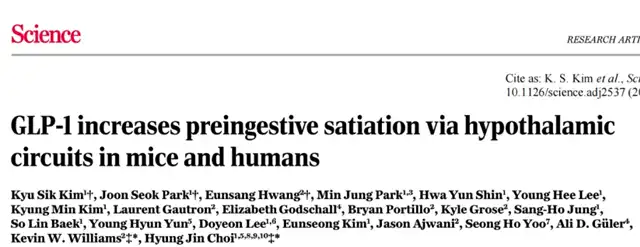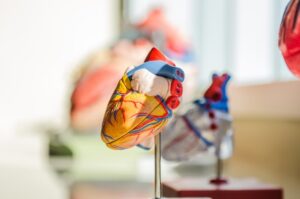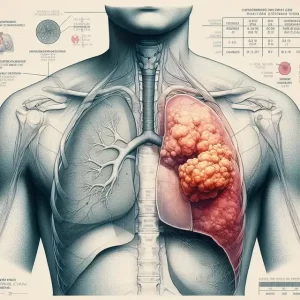Why is the Weight Loss Miracle Drug Effective?
- Why Everyone Should Learn CPR and AED Use?
- New Targeted Therapy for Small Cell Lung Cancer (SCLC) Targeting DLL3
- Why is the Weight Loss Miracle Drug Effective?
- Is CAR-T Cancer Immunotherapy Still Safe After Two Deaths Reported?
- Major Breakthrough in Infertility Research: This Stem Cell Could Be Key to IVF and Other Fertility Treatments
- Flesh-Eating Bacteria Infection Over 1000 Cases in Japan!
Why is the Weight Loss Miracle Drug Effective? Latest Science Paper: Tricking the Brain into Feeling Full Before Eating
- Chinese-made Drug Enters Australia: Causing at Least 20 Deaths!
- How serious is Japan’s “flesh-eating bacteria” problem?
- Taiwan 6th wave of COVID outbreak: 623 confirmed cases in one week and 38 deaths
- FDA has mandated a top-level black box warning for all marketed CAR-T therapies
- Can people with high blood pressure eat peanuts?
- What is the difference between dopamine and dobutamine?
- How long can the patient live after heart stent surgery?
Why is the Weight Loss Miracle Drug Effective? Latest Science Paper: Tricking the Brain into Feeling Full Before Eating
The emergence of GLP-1 receptor agonists (GLP-1RA) as weight loss medications has allowed people to achieve weight loss results that were previously only possible through surgery. For instance, semaglutide can lead to approximately 15% weight reduction, while tirzepatide can achieve over 20% weight reduction.
Initially, GLP-1 receptor agonists were used to treat type 2 diabetes by promoting the production of glucagon-like peptide-1 (GLP-1) to regulate blood sugar levels. However, researchers noticed that patients using these medications often experienced significant weight loss, which was attributed to reduced appetite. Nowadays, GLP-1 receptor agonists are increasingly used for weight loss. Despite their popularity, the exact mechanisms behind their effects are not fully understood. Many researchers are working to determine which parts of the brain are influenced by GLP-1 receptor agonists and why these drugs create a sense of fullness, leading to effective weight loss.
On June 27, 2024, researchers from Seoul National University and the University of Texas Southwestern Medical Center published a paper in the prestigious journal Science titled “GLP-1 increases preingestive satiation via hypothalamic circuits in mice and humans.”
The study reveals that GLP-1 receptor agonists can induce a sense of fullness before eating by activating the DMHGLP-1R-ARCNPY/AgRP neural circuits, explaining why these drugs are so effective at promoting weight loss. This discovery also offers new neural targets for treating obesity and metabolic diseases.

GLP-1 receptor agonists (GLP-1RA) are effective weight loss drugs. However, their precise mechanisms of action in the central nervous system remain unclear.
In this study, the research team first conducted trials with obese volunteers to assess their sense of fullness before and after eating a plate of fried chicken. They found that volunteers who used GLP-1 receptor agonists reported feeling full before eating and even more so after eating.
Analysis of brain samples from humans and mice indicated that neurons expressing GLP-1 receptors (GLP-1R) in the dorsomedial hypothalamus (DMH) are candidate neurons for encoding pre-ingestive fullness.
The research team then conducted further studies on mouse models, which showed that optogenetic stimulation of DMHGLP-1R neurons induced a sense of fullness. Calcium imaging indicated that these neurons are actively involved in encoding pre-ingestive fullness. The use of GLP-1 receptor agonists selectively increased the activity of DMHGLP-1R neurons during eating behavior.
Furthermore, the team discovered that after GLP-1 receptor agonists activate DMHGLP-1R neurons, these neurons interact with NPY/AgRP neurons (ARCNPY/AgRP neurons) in the arcuate nucleus (ARC) of the hypothalamus. The complex interactions between these neurons regulate food intake. This means that GLP-1 receptor agonists affect both DMHGLP-1R neurons and ARCNPY/AgRP neurons, explaining why these drugs are so effective for weight loss.
Overall, these findings reveal the hypothalamic mechanisms through which GLP-1 receptor agonists control pre-ingestive fullness, providing new neural targets for treating obesity and metabolic diseases.
Link to the Paper:
https://www.science.org/doi/10.1126/science.adj2537
Why is the Weight Loss Miracle Drug Effective? Latest Science Paper: Tricking the Brain into Feeling Full Before Eating
(source:internet, reference only)
Disclaimer of medicaltrend.org
Important Note: The information provided is for informational purposes only and should not be considered as medical advice.



